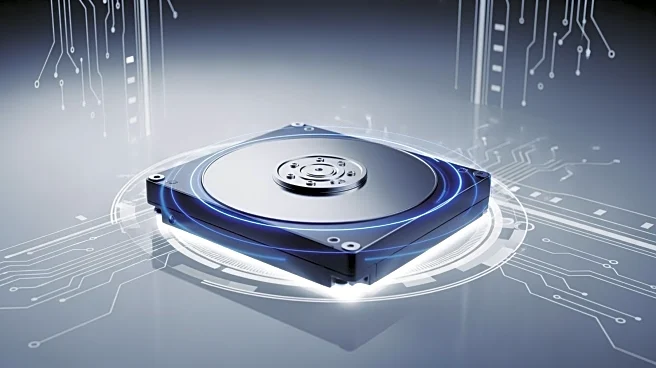What's Happening?
Backblaze, a backup and cloud storage company, has released findings from its ongoing analysis of hard drive reliability, revealing that hard drives are lasting longer and showing fewer errors. The company has been
tracking the annualized failure rates (AFRs) of hard drives in its datacenter since 2013, accumulating extensive data over the years. According to a recent blog post by Stephanie Doyle and Pat Patterson from Backblaze, the AFRs for the approximately 317,230 drives in their datacenter show a significant improvement in drive longevity. The peak failure rate for drives this year was 4.25 percent at 10 years and three months, a notable decrease from 13.73 percent at about three years and three months in 2013, and 14.24 percent at seven years and nine months in 2021. The drives analyzed were from manufacturers such as HGST, Seagate, Toshiba, and WDC, with capacities ranging from 4TB to 24TB.
Why It's Important?
The findings from Backblaze are significant for the data storage industry, as they suggest improvements in hard drive technology and reliability. Longer-lasting drives can lead to reduced costs for companies relying on large-scale data storage solutions, as they may not need to replace drives as frequently. This could also impact the environmental footprint of data centers, as fewer drive replacements mean less electronic waste. Companies that depend on reliable data storage, such as cloud service providers and enterprises with large data needs, stand to benefit from these advancements. The improved longevity of hard drives could also influence purchasing decisions and strategies for IT departments across various industries.
What's Next?
Backblaze's findings may prompt further research and development in hard drive technology, as manufacturers seek to capitalize on the trend of increased reliability. Other companies in the data storage sector might conduct similar analyses to verify these results and adjust their product offerings accordingly. Additionally, businesses that rely heavily on data storage may reevaluate their infrastructure investments, potentially leading to shifts in market demand for different types of storage solutions, such as solid-state drives (SSDs) versus traditional hard disk drives (HDDs).
Beyond the Headlines
The improved reliability of hard drives could have broader implications for data security and integrity. As drives last longer, the risk of data loss due to hardware failure decreases, which is crucial for industries that handle sensitive information. This development might also influence the design and engineering of future data centers, as companies look to optimize their storage solutions for both performance and longevity. Furthermore, the trend could encourage more sustainable practices within the tech industry, as longer-lasting hardware aligns with efforts to reduce electronic waste and improve environmental sustainability.










